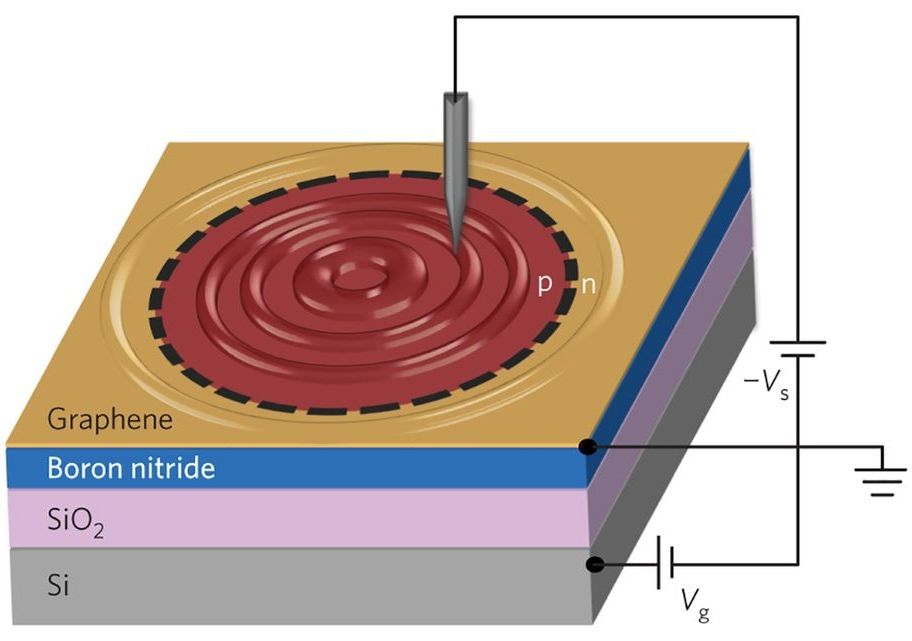(Phys.org)—A team of researchers with the University of California, MIT, Lawrence Berkeley National Laboratory and the National Institute for Materials Science in Japan has created images of relativistic electrons trapped in graphene quantum dots. In their paper published in the journal Nature Physics the team describes how they achieved this feat and where they plan to take their work in the future.
As the many unique properties of graphene continue to unfold, scientists seek new ways to harness and eventually make use of them. One such use might be to control electrons to allow their use in nano-scaled devices, which could also inadvertently lead to a deeper understanding of Dirac fermions. In this new effort, the researchers have made progress in that area by devising a means for capturing and holding electrons and for creating images of the result.
Obtaining images of electron waveforms has thus far been particularly difficult—virtually all existing methods have resulted in too many defects. To get around such problems, the researchers took another approach to capturing the electrons. They first created circular p-n junctions by sending voltage through the tip of a scanning tunneling microscope down to a graphene sample below. At the same time, they also applied voltage to a slab of silicon underneath the piece of graphene, which was kept separated by a layer of silicon-oxide and a flake of boron nitride. Doing so caused defects in the boron nitride to ionize, resulting in charges migrating to the graphene.
